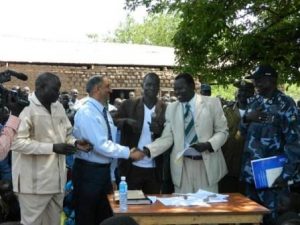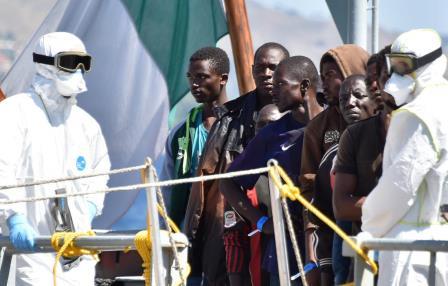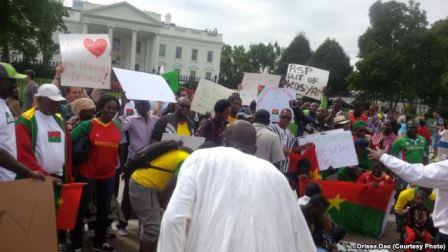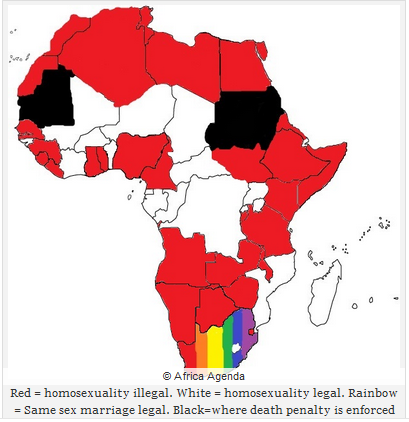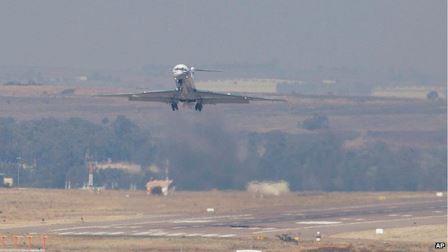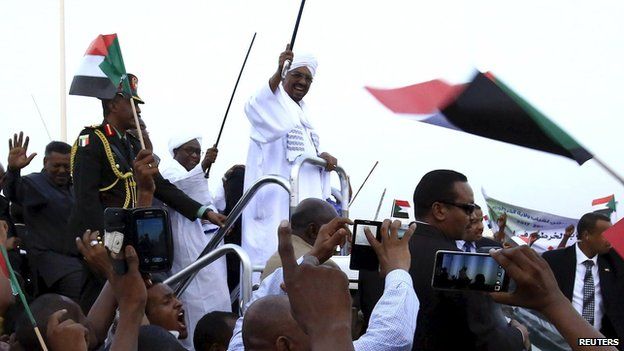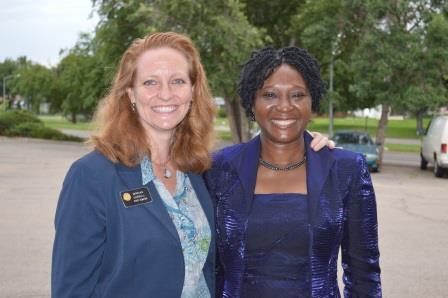Blog
South Sudan News Editor Calls on All Tribes to Work Together
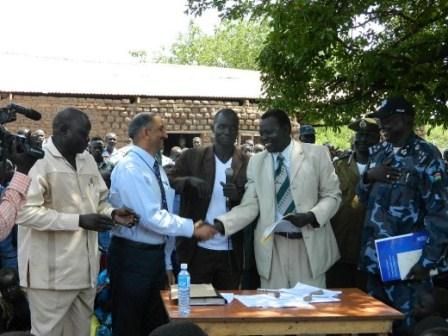
In two years, a lot has been achieved. Roads and bridges have been built, hospitals and schools are under construction and a lot is going on. But a lot remains to be done.
In this guest opinion piece, Duop Chak Wuol, an editor with the South Sudan News Agency, takes a look at some issues which need to be addressed in South Sudan, and how the country and its leaders can get on a path of success.
The politics of tribalism and regionalism have become problematic in South Sudan. The citizens of this nation know how tribalism kills and destroys. The South Sudanese have an extensive history of tribal conflicts. In a country like South Sudan, it is easy to find people doing things in tribal groups, as tribal interests are always associated with national issues.
This is not to single out the young nation, precisely because this phenomenon happens in any nation where tribalism is seen as politically expedient. Rather, it is a stratagem that keeps South Sudan moving downward.
In the Republic of South Sudan, tribal politics are used by most political leaders as a contrivance to serve themselves and their tribal affiliations due to the fact that the country is ethnically divided. This kind of grouping is influenced by tribal interests, and those who dare to question or challenge this hooded-system are treated by their tribal hoodlums as traitors. Such challenges often result in isolation and in some instances, the so-called traitor is unjustly condemned to harsh treatments or even death.
These tribally-motivated practices must be addressed so as to understand, minimize, or perhaps eliminate those aspects that are destructive to the well-being of society. I call these tribally-motivated practices, “the mentality of who is your uncle.” The reason I choose the above name to describe South Sudanese tribal rehearsals is that it is common in South Sudan to see one tribe advancing its ideology in the pretext of unity and togetherness for all tribes while secretly working to undermine the interests of the other tribes.
The ethnic and regional politics were tried before by other governments including the former Soviet Union, and they failed miserably. Indeed, I sincerely doubt if the regionalization of politics of the Republic of South Sudan will work best for the Sudan Peoples Liberation Army (SPLM) because it is likely to encourage regionalism, tribalism, and sectionalism.
It is evident that the moral and political objectives that all the tribes of South Sudan fought for were precisely and unequivocally to ensure the establishment of their own country; it was not to tribalize or regionalize the young republic after independence. The people of South Sudan fought together to have their own country. Tribalization and regionalization threaten the young republic after hard-won independence. However, the South Sudanese should learn from other nations that once tragically employed tribal and regional conflicts to function as so-called good politics.
The 1994 Rwandan genocide is a good example of a nation filled with both tribal and regional hatreds. I do not believe that the citizens of South Sudan want their country to be a “failed state,” because I know that they are proud of their identity and cultural norms, but they also suffer from hearts full of toxic, tribal ideologies. In a society like South Sudan, tribal conflicts will always be there, but they can be minimized if political leaders think collectively. I would not argue with sadists on this particular issue because I know that their ultimate purpose is to see the people of South Sudan fail and suffer.
People should not waste their time listening to politicians who care only about elections, power, and recognition. The right people to listen to are those leaders who think and act like statesmen—these leaders are people who act collectively, think deeply about the future of the country, work to better their nations, and show rationality in any calamity, regardless of any political risk that may stand in their way. The leaders of this young nation must act in this manner if they wish to minimize or avoid the looming regional and tribal politics.
The fact of the matter is that the Republic of South Sudan is a nation still deeply infested with tribal ideologies and the SPLM-led government must be smart to avoid digging its own political grave.
What are the possible consequences if these issues are not addressed quickly?
There are consequences that the SPLM-led government must prepare for if it is serious about its own political potential. However, if the ruling party fails to change its current political attitude and cast off its autocratic tendencies, then the following outcomes may be all but inevitable:
(1) South Sudan will be deeply divided into regional and tribal lines—this could encourage or incite ethnic or regional rebellions, deepen mistrust between communities in the already fragile society, and further destabilize the new nation.
(2) The ruling party will lose its vital grounds and regional politics will ascend—this could cause an uprising against the ruling party.
(3) National parliamentarians will be influenced or guided by regional or tribal politics, not national or party politics.
(4) A popular and possibly stronger political party will emerge, and the SPLM will eventually lose its hold on the political, economic, security, and military spheres.
(5) A new rebel movement that is far more powerful than any current or previous rebel group could surface.
These five outcomes are probable unless Juba’s autocrats adjust their autocratic propensities.
In all successful societies, everyone must be willing to make sacrifices and the SPLM’s elites and citizens alike are not immune to these social responsibilities. The future of this country can only be built by leaders who think and act like statesmen who, acting in the capacity of fellow countrymen, actively fight for the growth of their country, the future of their youth, the cultivation of the unique talents of their people, the preservation of their country’s environment, the enactment of compassionate laws protecting the poor, elderly, and disabled—this is the future, and much needed and anticipated statesman of South Sudan; they are individuals who will cultivate justice and peace among their people.
I understand that cultural norms are very important in almost any society, but this will not suffice if the people of South Sudan are to have a significant influence on the future of their country. There is no need to stick to a tradition that costs lives. It makes sense for tribes to defend their interests, but tribal agendas can contribute to the development of a nation only if they are collectively acknowledged and accepted by all tribes that make up the nation.
What can be done?
Building a successful, democratic nation can only be done by political leaders who think and act like statesmen, people who think collectively, not by leaders who think and act like autocratic politicians and crave power.
Can we ever legitimately assert that some tribes are morally superior to others? Can this ever be compatible with a unified country that supports all of its citizens, despite tribal membership? These questions are for you to consider and draw your own conclusions.
Building a successful democratic nation can only be done by political leaders who respect the laws, and behave like statesmen. The people of South Sudan did not fight for an autocratic government or a one-party state; they fought hard to have a nation where opposing views are respected. The SPLM’s deceptive politics should not be used as the policy of the government, and they must not be tolerated.
The government must work with tribal leaders in tackling ethnic conflicts. The SPLM should implement policies that match its founding principles, eradicate its autocratic tendencies, and lead as a national political party if it is to regain the peoples’ confidence. Otherwise, it risks ongoing diminishment of its own legacy and legitimacy and eventual collapse.

